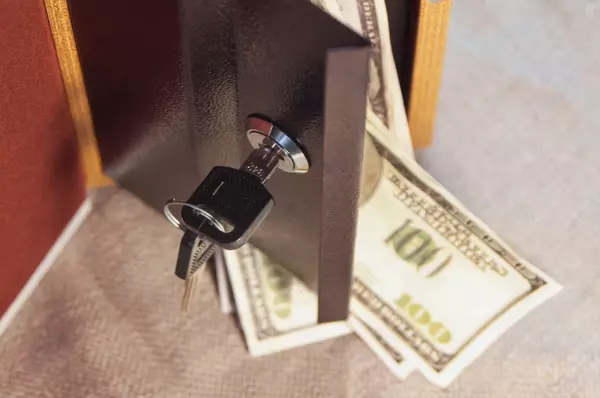Maxing Out Your Mortgage: Wise Decision or Financial Folly?

Maxing Out Your Mortgage: Wise Decision or Financial Folly?

Stretching Your Budget—Big Dream or Big Risk?
Embarking on the journey to buy a home marks a pivotal life event, packed with both dreams and decisions. As the thrill of house hunting sparks our imaginations, it's easy to be swept up by visions of grand living spaces. This often pushes us toward considering the upper limits of our pre-approved mortgage amounts. It’s tempting to eye that larger, more opulent home, but pause and think: is stretching your financial bounds a shrewd move or a step toward future regret?
When you receive a mortgage pre-approval, it reveals what a lender believes you can handle financially, based on your credit, income, and debt. But here’s the catch—not all that glitters is gold. Just because you can borrow a hefty sum doesn't mean you should. This article will peel back the layers of maxing out your mortgage. We'll weigh the hazards of pushing your budget against the merits of spending within your means. What should guide your choice? Are there smarter strategies to ensure your financial wellness and joy in the long haul? Let’s delve into these questions together, exploring paths that safeguard both your wallet and your peace of mind.
The First Step: Decoding Mortgage Pre-Approval

Mortgage pre-approval often kicks off the home-buying journey, acting as a financial green light that assures both you and the seller of your buying capability. Grasping this process is vital for anyone stepping into the housing market.
Breaking Down Mortgage Pre-Approval
A lender's pre-approval involves a detailed review of your financial life—your credit score, income, debts, and potentially, the value of the home you're eyeing. This not only makes you an appealing candidate in the eyes of the seller but also signals your serious intent and financial readiness.
Pre-Approval Versus Pre-Qualification
Understanding the difference between pre-approval and pre-qualification is key. Pre-qualification is an initial peek into how much you might borrow, often without requiring solid documentation, making it less concrete than pre-approval.
Why Get Pre-Approved?
- Bargaining Strength: A pre-approval letter can tip the scales in your favor in a bidding war.
- Focused House Hunting: Knowing your budget narrows down your options, saving you from heartache and wasted time.
- Speedier Closing: With much of the financial legwork done, the path from offer to ownership accelerates.
Limits and Common Misunderstandings
While a pre-approval is a powerful tool, it's not foolproof. Changes in your financial status, shifts in interest rates, or surprises in the property inspection can derail the process. Furthermore, pre-approvals are usually valid for 60 to 90 days, necessitating a refresh to accommodate changes in your situation or market conditions.
Practical Advice
Remember, just because you can borrow the maximum doesn't mean you should. Lenders often overlook everyday expenses like childcare or groceries. It's wise to balance your budget with your lifestyle, ensuring you can live comfortably while paying off your home.
Navigating the Perils: The High Cost of Dream Homes
Venturing into the realm of using your full mortgage pre-approval can be tempting, especially when it leads to the doorstep of your dream home. However, the financial implications of such a decision warrant a thorough examination. Here's what to ponder before signing on the dotted line:
Escalating Financial Commitments
Embracing the full extent of your mortgage capability means steeper monthly dues. This surge can squeeze your monthly budget, leaving less room for unforeseen expenses or saving for future financial goals like retirement or your children's education. It may also curtail funds for home upkeep or improvements.
Variable-Rate Vulnerabilities
Choosing a variable-rate mortgage exposes you to potential hikes in interest rates. Even a slight increase can significantly inflate your monthly outlay, further tightening your financial flexibility.
Asset Rich, Cash Strapped
Pouring most of your income into your home can trap you in a cycle where your assets are tied up in property while your liquid cash dwindles. This imbalance might force you to lean on credit cards or additional loans, ushering in further debt.
Credit Consequences
Hefty mortgage payments can strain your financial management, potentially dragging down your credit score. This decline can hamper your chances of securing favorable terms on future loans or credit needs.
The Danger of Dipping Values
In a fluctuating market, you might find your mortgage balance surpassing your home's value—a scenario known as negative equity. This position complicates refinancing or selling your home without absorbing a financial hit.
Thoughtful Strategy
In determining how much of your pre-approval to utilize, prioritize your long-term financial wellness. Ensure a buffer exists to navigate market shifts, unexpected expenses, and upcoming life events without jeopardizing your fiscal health.
Embracing Modesty: The Upside of Spending Within Your Means
Opting to spend below your maximum pre-approved mortgage might not sound as glamorous, but it often leads to substantial financial and personal gains. Here's why embracing a more conservative approach when purchasing a home could be your smartest move:
Enhanced Financial Maneuverability
Choosing a more affordable home liberates part of your budget, allowing you to allocate funds to other essential areas. This might include covering unexpected expenses like health emergencies or critical home maintenance without upsetting your financial equilibrium.
Stress Reduction
Securing a home that comfortably fits within your budget can alleviate financial anxiety. With manageable mortgage payments, you can enjoy your living space and sleep easier, knowing your finances are under control.
Opportunities to Save
Lower housing costs can boost your savings, enabling you to set aside funds for retirement, your children’s education, or indulging in hobbies and vacations. Regular saving strengthens your financial safety net, providing peace of mind.
Potential for Financial Growth
With the savings from conservative spending, you're better positioned to explore additional investment opportunities. This could range from dipping into the stock market to starting a new business or even buying investment properties. Accessible capital is key for financial diversification.
Future Upgrades
Starting with a home that’s easier on your wallet might also provide an opportunity to upgrade later. As your financial situation flourishes, moving up the property ladder could become feasible without stretching your finances thin initially.
Consider Your Lifestyle
When deciding on your housing budget, reflect on your lifestyle preferences and long-term plans. A smaller initial mortgage could leave room in your budget for travel, dining out, and other activities that enrich your life, making it not just a financial decision, but one that enhances your overall quality of life.
Key Considerations: How Much Mortgage Can You Really Afford?

Deciding whether to use all or just a portion of your mortgage pre-approval involves more than just the maximum amount you're eligible for. Here are essential factors to mull over to ensure you make a sound decision:
Aligning with Future Financial Goals
Reflect on your long-term financial aspirations—be it saving for retirement, investing, or funding educational pursuits. Your home purchase should facilitate these goals, not hinder them. Opting for a lower mortgage could free up resources to invest in your future.
Assessing Job Stability and Income
Your employment scenario and the predictability of your income are pivotal. If your job security is uncertain or if your earnings fluctuate, particularly with commission-based jobs, it's prudent to lean towards a conservative mortgage choice.
Preparing for Life’s Unpredictables
Life is full of changes, like expanding your family, switching careers, or relocating. Each of these transitions could dramatically impact your financial comfort and your capability to manage large mortgage payments.
Understanding Market Dynamics
The state of the real estate market should also guide your decision. In a buyer's market, you might snag a deal within a modest budget. In a seller's market, however, stretching your financial limits may not necessarily promise a good return.
Personal Debt Comfort
Debt tolerance varies from person to person. Assess how much debt you can handle without undue stress. Choosing a mortgage that keeps your debt-to-income ratio within a comfortable range can help avoid financial discomfort.
Emergency Preparedness
Before you decide to max out your mortgage, make sure you have a solid emergency fund—ideally six months’ worth of expenses. This fund is your financial safety net, shielding you from having to rely on credit during unexpected setbacks.
Concluding Thoughts
Weighing these factors carefully helps you determine a mortgage amount that supports not just the purchase of a home but a secure financial trajectory. Make a choice that promises peace of mind and stability for the future.
Exploring Alternatives: Smart Moves Beyond Full Pre-Approval
Choosing not to tap into the entirety of your pre-approved mortgage can unveil various strategies that might better align with your financial landscape. Here are some smart alternatives to consider instead of stretching your mortgage to its limits:
Target More Affordable Homes
Scout for properties that fall below your max budget. This approach can ease your monthly financial burden, lessen stress, and free up funds for other needs or savings goals.
Boost Your Down Payment
If your savings allow, increasing your down payment can significantly cut down the principal of your loan. This reduction not only lowers your monthly installments but may also fetch you more favorable interest rates.
Consider Varied Housing Types
If a single-family home feels like a stretch, think about other housing forms like townhouses or condos. These often come with a more accessible price tag while still catering to your lifestyle needs.
Venture into Different Neighborhoods
Home prices can fluctuate dramatically across different areas. By exploring diverse neighborhoods, you might discover more budget-friendly options that still meet your criteria without overextending financially.
Delay the Purchase
If possible, putting off your home purchase could give you a better footing financially. This delay not only helps in building a larger savings pool but also provides a chance to reevaluate your needs against the evolving market landscape.
Seek Expert Financial Advice
Engaging with a financial advisor can be a wise step before finalizing your decision. They can offer tailored advice that considers your unique financial situation and guide you towards the most beneficial home buying strategy.
Why Opt for These Alternatives?
Choosing one of these alternatives can enhance your financial security and provide flexibility. It’s vital to opt for a home buying path that not only satisfies your current housing needs but also fortifies your financial health and furthers your long-term goals.
Wrapping It Up: To Max or Not to Max Your Mortgage
Deciding whether to use the full extent of your mortgage pre-approval is more than a financial calculation—it's a strategic choice that impacts your long-term well-being. As we've explored, maxing out your mortgage might open doors to your dream home, but it could also usher in financial pressures, reduce your adaptability, and risk your future financial objectives. Conversely, a more measured spending approach brings several advantages, including less financial stress, enhanced savings potential, and broader overall financial safety.
Before you leap into such a pivotal decision, it's essential to take a holistic look at your personal and financial life. Reflect on your future aspirations, the stability of your job, potential life shifts, prevailing market dynamics, and your personal debt comfort. It’s crucial that your mortgage decision mirrors not only what you're eligible for but also what you can sustainably afford, ensuring it doesn’t undercut other aspects of your life.
If uncertainty looms over how much to invest in your home, consider other paths: seek more economical properties, amplify your down payment, or even delay your purchase to bolster your financial base. Engaging with a financial advisor could also shed light on choices that best fit your specific situation.
The ultimate aim is to make a home buying decision that feels right both now and down the road. Invest time in an informed deliberation that supports your homeownership dreams while safeguarding your financial future.
Categories
Recent Posts











